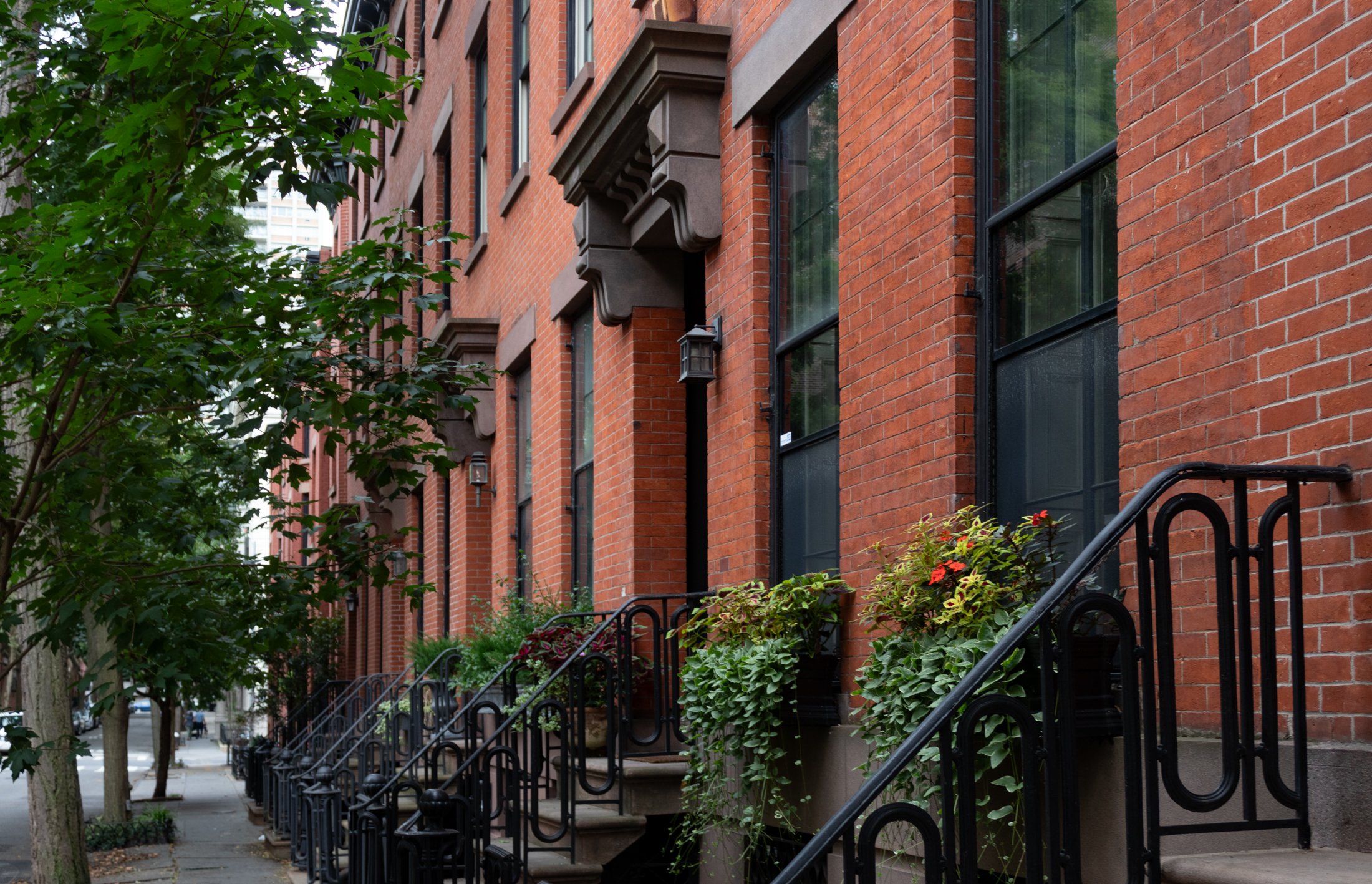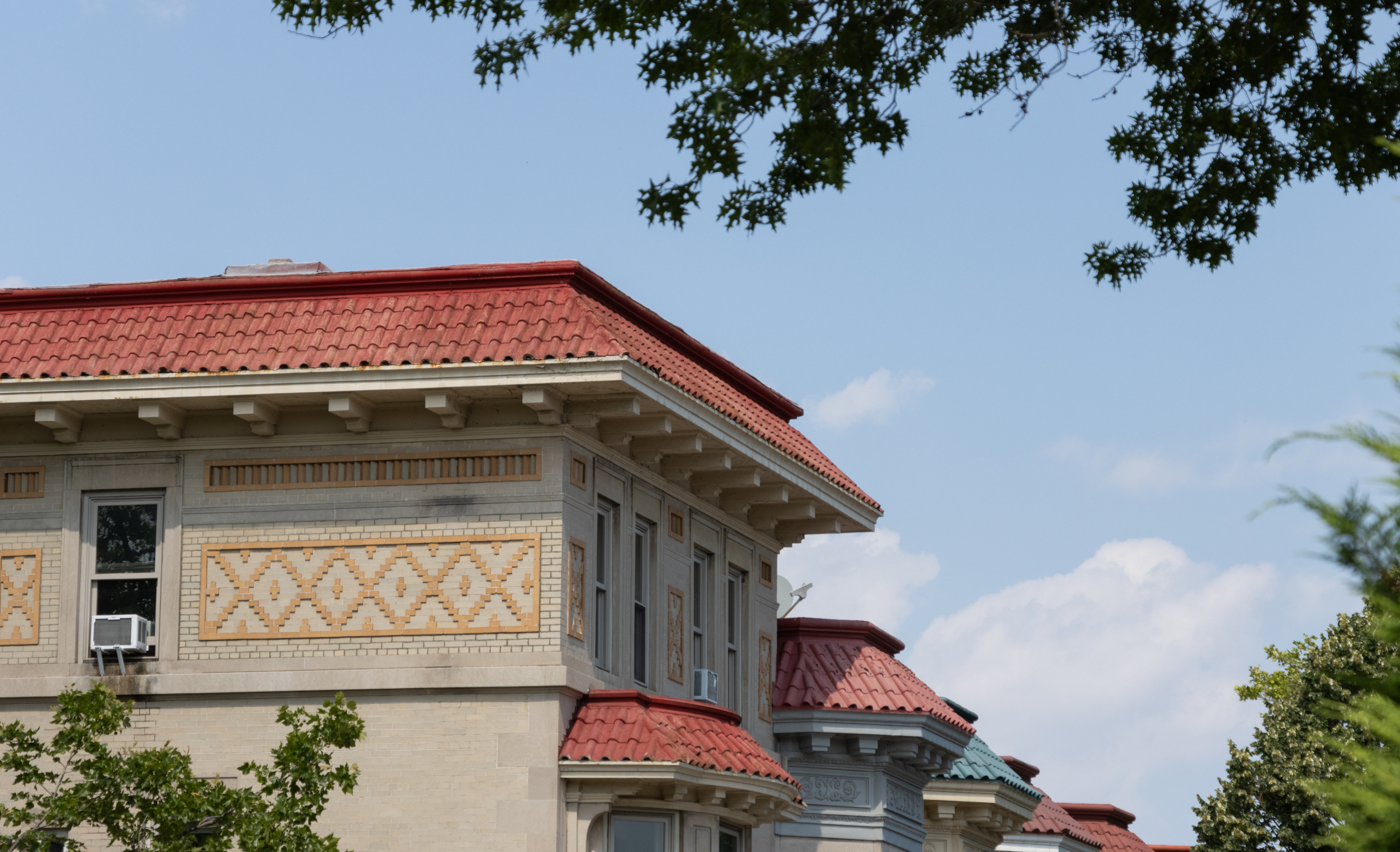Spencer Street Condo Saga Drags On
This week City Limits checks in on the unfortunate drama surrounding the Spencer Street Condos in Bed-Stuy. As will come as no surprise to anyone who’s been tracking the story since the early days of the Brooklyn real estate boom, there are no happy endings in sight. To refresh: In 2005, residents who’d bought their…


This week City Limits checks in on the unfortunate drama surrounding the Spencer Street Condos in Bed-Stuy. As will come as no surprise to anyone who’s been tracking the story since the early days of the Brooklyn real estate boom, there are no happy endings in sight. To refresh: In 2005, residents who’d bought their condos at 201 Spencer Street the year before from developer Mendel Brach (he of Finger Building fame shame) found out after closing that the building had been illegally overbuilt by four stories by exploiting a “community facility” provision in the code that allowed developers to build extra square footage for educational and religious purposes; in this case, Brach claimed he was going to house teachers from a nearby yeshiva. Department of Buildings failed to catch Brach’s maneuver at the time, approving the building for occupancy just long enough for the unsuspecting condo buyers to close on their units. They’ve all been trapped, unable to sell, for five years.
Residents are trying to negotiate with Brach to gain air rights from neighboring properties, a move that would bring the Spencer Street buildings into compliance, but Brach will only negotiate if residents let him off the hook for $10,900,000 in damages he owes them from a 2009 lawsuit. In the meantime, he’s chipping away at his debts a little bit at a time: $280 a month of Brach’s wages at his bakery job are garnished to pay condo owners. That comes out to a whopping $3.88 per unit. Despite having had a hand in creating the situation, the DOB isn’t being too sympathetic with residents now: they could allow special variance or rezoning to bring the buildings into compliance with zoning regulations, but haven’t for fear of sending the wrong message; nor has the state filed any criminal actions against Brach. “When you deal with these city agencies, I’m learning, logic goes out the friggin’ window,” said one of the unlucky condo owners. “They make the rules. They make no sense to anybody else and they can change the rules when they want.”
Saga of The Worthless Condo [City Limits Magazine]
Banned Devloper Pays Settlement from Bakery Wages [Curbed]
Subpoena for Fraudulent Spencer St Developer [Brownstoner]
A Big F-in Mess on Spencer Street [Brownstoner] GMAP
Lock Him Up and Throw Away the Key [Brownstoner]
The Bottom Line on Developer Abuses [Brownstoner]
Photo by Marc Fader.





http://www.denverpost.com/allewis/ci_15560965
lesson learned: the developers, attorneys and banks always win. There is no happy ending.
Does anyone know if the Lawyers were sued? Seems to me that the Lawyers gave BAD ADVICE to their clients to proceed with purchasing a residential apt without a C of O.
Closing before the official C of O should be considered as taking over a development since only an official C of O makes the apt officially a residential property with legal occupancy.
I do sympathize with the condo owners, but really, why close on an apt if the C of O has not been issued?
Its an educational exemption, not a religious one. Housing for faculty or students (dormitory) qualifies as community facility, and can build to a larger floor area. In districts without height limits, that means you can build higher. That’s how NYU can build big dorms and faculty housing, and how SVA built that huge (hideously ugly) building on Delancey Street. And its how Brach built this building – in this case, he claimed it was housing for faculty from some yeshiva. The difference is that SVA and NYU put actual students and faculty in their dormitories.
I don’t think the developer is off the hook – he has a $10+ million judgement against him. But the plaintiffs can’t collect because the developer has no (visible) assets.
I am interested/confused/concerned/perplexed by the exemptions that are provided for buildings based on what seems to be a religious basis. Like, why would it be ok for the building to be bigger if it housed religious students? Also, it really seems unbelievable to me that the developer is seemingly off the hook. He just gets to pocket the money he made off selling illegally built apartments? This story is incredible.
Benson – not having a CO doesn’t prevent you from renting a place, but it does have its problems. If there is no residential CO (and assuming no grandfathered use), a tenant could use the housing court system to make your life miserable. Happens sometimes with lofts and storefronts – tenant stops paying rent, you have to go to court to get payment, tenant points out that living isn’t legal, so the whole lease is void, etc. The etc. being that you are out quite a few months rent while this process plays out, plus attorney fees.
Action Jackson nails it – this all starts with professional cert. Not to exonerate DOB, but these plans were certified by the architect as being for faculty housing. The developer is the liable party, as he knowingly sold the units to non-faculty (he also procured the documentation from the Yeshiva to show DOB that the building was intended as faculty housing). The architect is liable to the extent that he knew that the documents he was filing with DOB were false.
Even the TCO certs aren’t a smoking gun – DOB is inspecting the building to see if it meets various code requirements, but I’m pretty sure they don’t go around knocking on doors and checking faculty IDs. (They do have a responsibility to inspect complaints, which is another matter entirely – given how good DOB is at inspecting after-hours and other work, I’m sure they didn’t try too hard.) Also, DOB is no position to grant a variance or rezoning – the original article correctly says that the CITY can do this (through Planning or BSA).
Again, I’m not trying to exonerate DOB – their professional cert system and the complete lack of oversight prior to 2009 facilitated all of this. If DOB – the Brooklyn office in particular – was remotely proactive in any of this, developers and architects wouldn’t have been so confident that they could get away with this shit.
Folks;
I think there is some mis-information going on here. Not having a C of O does not prevent you from renting a place. I know this from first-hand experience because my condo was in a similiar situation to this one (but fortunately ours had a much happier ending).
You can also sell your place if you can find someone willing to pay all cash.
The killer is that no bank will finance a sale unless there is a C of O.
Unfortunately, in new development, sometimes you HAVE to use the mortgage banker provided by the developer, because most banks won’t finance new development if the majority of units are not in contract – the key is not to use the lawyer or inspector recommended by the developer.
So … what do you *do* to educate people about stuff like this? No one should use the lawyer (or the mortgage broker) provided by the developer. But not everyone realizes that they need to take some ownership of the process if they don’t want to get screwed.